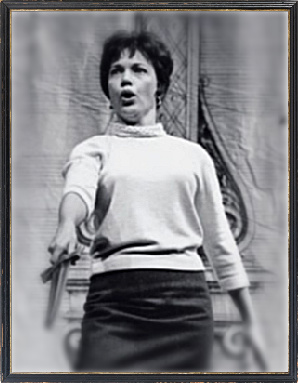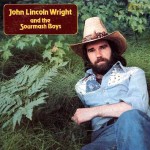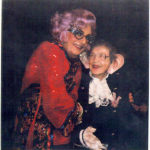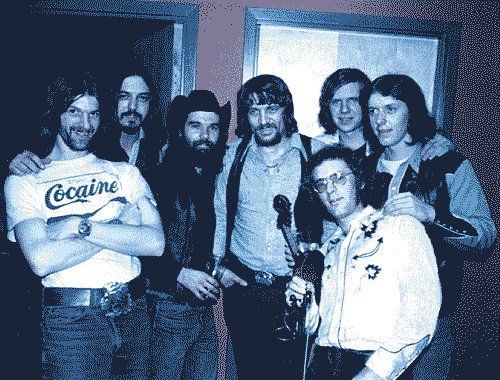Like a lot of “fiddle players,” I started as a classical violin, and one summer had the great pleasure (in the Brevard Festival Orchestra) of accompanying the mezzo soprano, Beverly Wolff.
I was 15 at the time, and developed a little crush on this lively creature. For one thing, she was both Southern and Jewish, a cultural mix I’ve always found fascinating. For another, she was flat out vivacious and sexy–an “older woman,” yes, but only 30, small, dark, fetching.
Beverly made a deep impression on me then, so much so that when I learned several years ago that she had died, at 79, the shock came in two waves. The first: Beverly Wolff, dead? What a loss. And then: 79, are you kidding me? These are facts, of course, but Beverly Wolff will always be that lively, supremely confident 30-year-old who knocked me out back then.
The photo above doesn’t really do her justice. It’s not easy to find good images of her on web. Why? I suspect it’s because about the time I encountered her she was already dialing back her insanely promising career to have a family. She performed only selectively from then on.
It’s not exaggerating to say Beverly was one of the greatest dramatic mezzos ever. To get a sense of how good she was, listen to this: it’s the aria “All’afflitto e dolce il pianto,” from Donizetti’s opera, “Roberto Devereux ossia Il conte di Essex.” This is an example of the operatic vocal style called “bel canto.” No fireworks, but it’s particularly challenging to singers because it requires a high degree of subtle virtuosity. A combination of agility, and elegance are essential to bel canto. The singer must have impeccable taste, but also be so technically confident as to seem almost casual about it.
All in a day’s work for Beverly. Listen to how she not only crushes it, but makes it sound easy.
One of the works she performed with us was called “Kaddish,” by Leonard Bernstein. I think it was an early version of what evolved into his Symphony No. 3, “Kaddish.” The Symphony No. 3 premiered several years later, in 1963, but “Kaddish” had been originally commissioned much earlier, in 1955, by the Koussevitsky Foundation and the Boston Symphony Orchestra. Our performance took place in 1959 or 1960. That’s why I’m guessing it was an early piece of the later work.
The text was definitely in Hebrew. I remember this because, at rehearsal, after nailing the it the first time through, she turned to the orchestra and called out, “Y’all like my suh-thuhn Hebrew?” That’s an example of the disarming unpretentiousness I found so attractive about her.
Even in rehearsal for Mahler’s grim “Kindertotenlieder” (“Songs on the Death of Children”) she maintained an air of lighthearted professionalism–which made it all the more stunning when at the evening performance, she swept out, in black, deeply mired, it appeared, in a state of profound grief.
In most modern orchestras, there is a narrow passage separating the first and second violin sections; it leads off-stage to the green room and is the path taken by conductor and soloists for their entrances and exits. I sat halfway back in the second violin section, outside chair. This meant that, as she entered, Beverly swept by only inches from me.
I’ll never forget the moment because it was as if the air had suddenly chilled as a deeply troubled presence passed by. Her performance was spectacular, not only for her complete mastery of the Mahler, but for the ravaged intensity of grief she conveyed. This was a “method” singing performance if there ever was one.
Over the years I’ve thought of Beverly Wolff and that concert, told people about her, watched for signs her career was continuing (it was). Occasionally I would catch a review in the New York Times––always a respectful rave––of a Town Hall recital or an appearance with the New York City Opera. Reviewers would always note the irony that she had curtailed her career at such an early age, which kept her from becoming the celebrity diva, the “immortal” she could certainly have been had she devoted her life to it.
But apparently all that was just fine with her. Beverly Wolff, it seems, had an unusually clear sense of the balanced life. I imagine she came as close to “having it all” as one can. She did it by being both brilliant and modest. She married, had two sons, and kept her performance schedule trimmed to two out of every five weeks. The other three, she spent at home, as a wife and mother.
Regrets? She apparently never had them. After all, celebrity be damned, she had the respect of the entire music community any time she wanted to perform–and (as she put it) “You can’t leave a list of performances to posterity. The only future is your children, and rearing them is not a part-time job.”








{ 3 comments }
Beverly was like a second mother to me, as I grew up in Lakeland and was best friends with one of her sons, Don. I spent a great deal of time at their house and vividly remember Beverly rehearsing in the living room as their hound dog chimed in and sang along (I don’t know how she stayed in key). I never knew she sang for the Pope and John Kennedy until I read her obituary. To me, she was just the caring mother of my best friend. Beverly, John, and Don (and his wife Meli) will always be in my thoughts and prayers.
I am writing my dissertation on Beverly Wolff! I have been working for several years to compile her performance history. I have been trying to find a way to connect with people that she impacted and any of her family members and have not had a lot of success. I would love to speak with you please feel free to contact me at sarahdowns@rocketmail.com
My Dear Aunt Beverly, the last time I saw her was when my wife and I along with my Granddaughter Calista (named after Aunt Beverly’s older sister, who was my Mother) visited her and John at their home in about 2003 or 4. After my Mother passed in early 1942 I lived with my Grandmother. At that time, Beverly was about 13 (8 years older than me). I remember several times riding our bikes to the library in Kirkwood and when she sat in the porch swing and taught me to write my name in cursive. She has always been an inspiration to me. She once took me to eat my very first Italian spaghetti dinner in Washington, DC and then to the play “Tea and Sympathy” starring Deborah Kerr who was the original actress when it was on Broadway. Just super!
She was and will always be my hero.
Comments on this entry are closed.